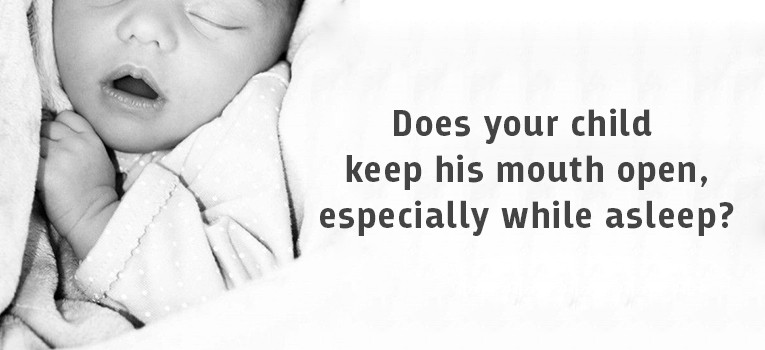It’s everyone’s dream to have peaceful perfect sleep. Normally breathing takes place by nose but if child is keeping his mouth open specially at nights then possibly there is some obstruction to his/her breathing. Mouth breathing and/or snoring due to adenoids or allergic cold is common in children.
If your kids are suffering with mouth breathing, snoring, pauses in breathing, gasping noises, grinding and clenching the teeth you might find it harmless and so will most of the health professionals. They will ignore such little things which can possibly be definite signs of obstructive sleep apnea in children leading to poor development of behavior, personality and facial and oral development.
In fact, deep sleep stimulates the production of human growth hormone which is substantial for the overall development and long bone growth in children. Disturbed sleep as a result of sleep apnea can thus result in stunted growth as well as brain development. In some cases, it may adversely affect heart and lungs.
Symptoms of obstructive sleep Apnea in children:
You will find it difficult to wake your child up who may sometimes be cranky during the day due to the lack of night rest. You might notice a decreased level in his energy or seems to look tired or falls asleep unexpectedly anywhere at any given time or a drastic drop in your child’s school performance without any other clear cause and paradoxically child may be hyperactive but lacks attention. Child may have learning disability or bed wetting.
ENT specialists suggests that deep sleep stage is really important to children and infants as it can enhance body’s chance to restore, repair, and heal from the stress. Hormones that control appetite and other critical functions are regulated and stabilized during this stage.
Lack of deep sleep can cause obstruction of airway can lead the brain to bounce out of deep sleep and resulting lighter stage of sleep in order to allow for breathing again. Resulting sleep is not sound sleep.
What should parents do for treatment of sleep apnea?
If your child keeps his mouth open while sleeping, has snoring or if you suspect your child may have symptoms of sleep apnea, talk to your family doctor/pediatrician who may refer you to a sleep specialist or ENT Specialist. Overnight sleep study may be advised. This study records the child’s sleep, brain waves, body movements, heartbeat, breathing, oxygen levels, arousals and snoring.
Contributing factors for sleep apnea may be obesity, allergies, asthma, GERD and abnormal face/jaw structure, large tonsils and enlarged adenoids and allergic cold. Oral appliances may be prescribed.
The child also needs to be treated for all his GERD and allergies and parents should take precautions in a child’s diet and the surrounding environment conditions. Enlarged tonsils and adenoids may have to be removed by endoscopic microdebrider or cryosurgeries. Cranial abnormalities may require specific surgeries. UPPP is done in selected cases. CPAP may be recommended to use.
Snoring treatment specialist and ENT doctors in Mumbai warns that sleep apnea can have serious complications as most of the time it remains undiagnosed and untreated because of lack of awareness -that keeping mouth open at night or snoring could not be a problem…
All children with LD, ADHD, behavioral problems and poor academic performances should be assessed for sleep apnea and upper airway should be evaluated by ENT specialists.




